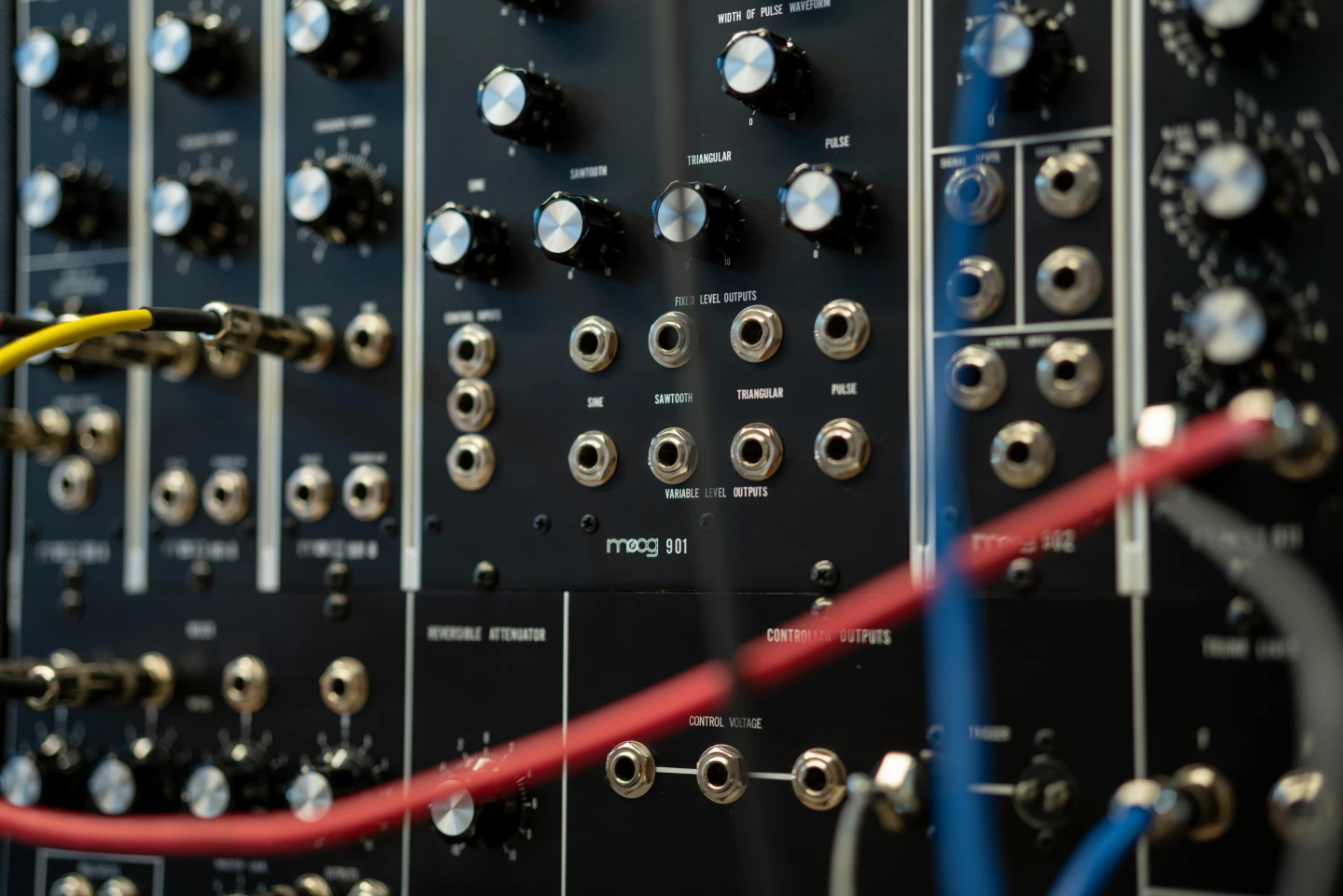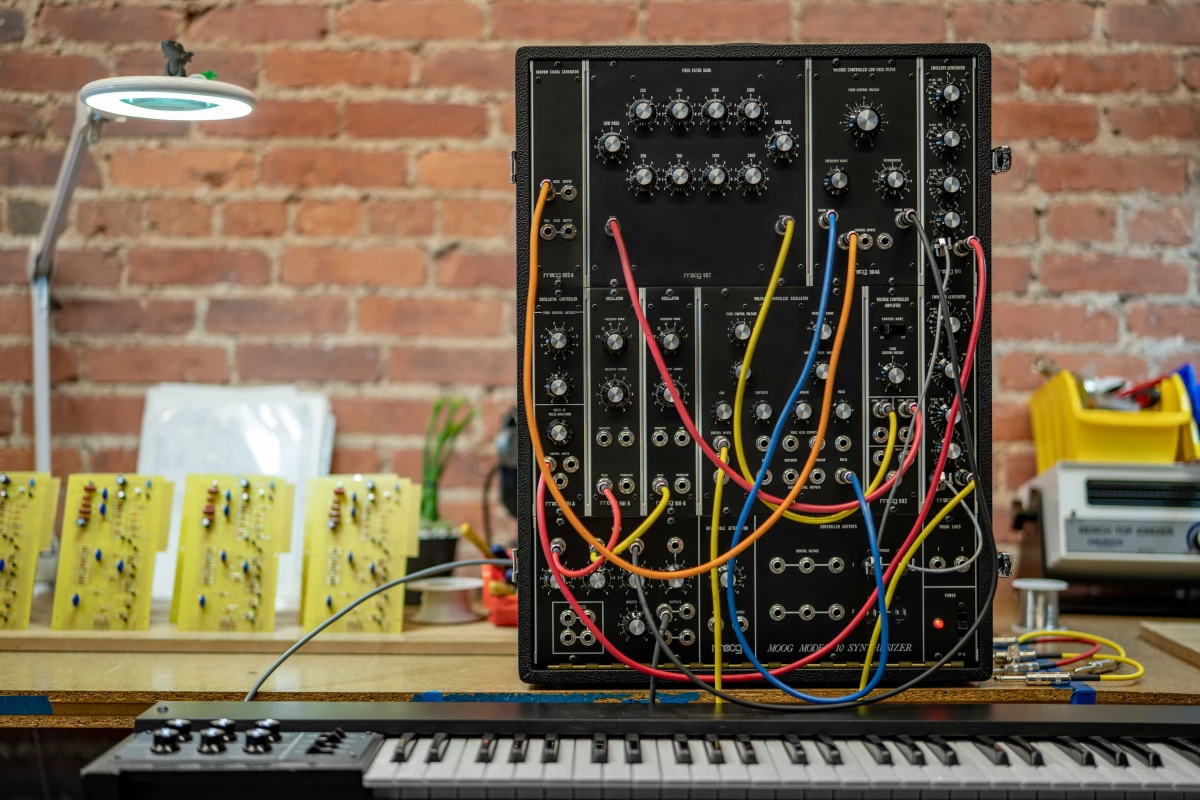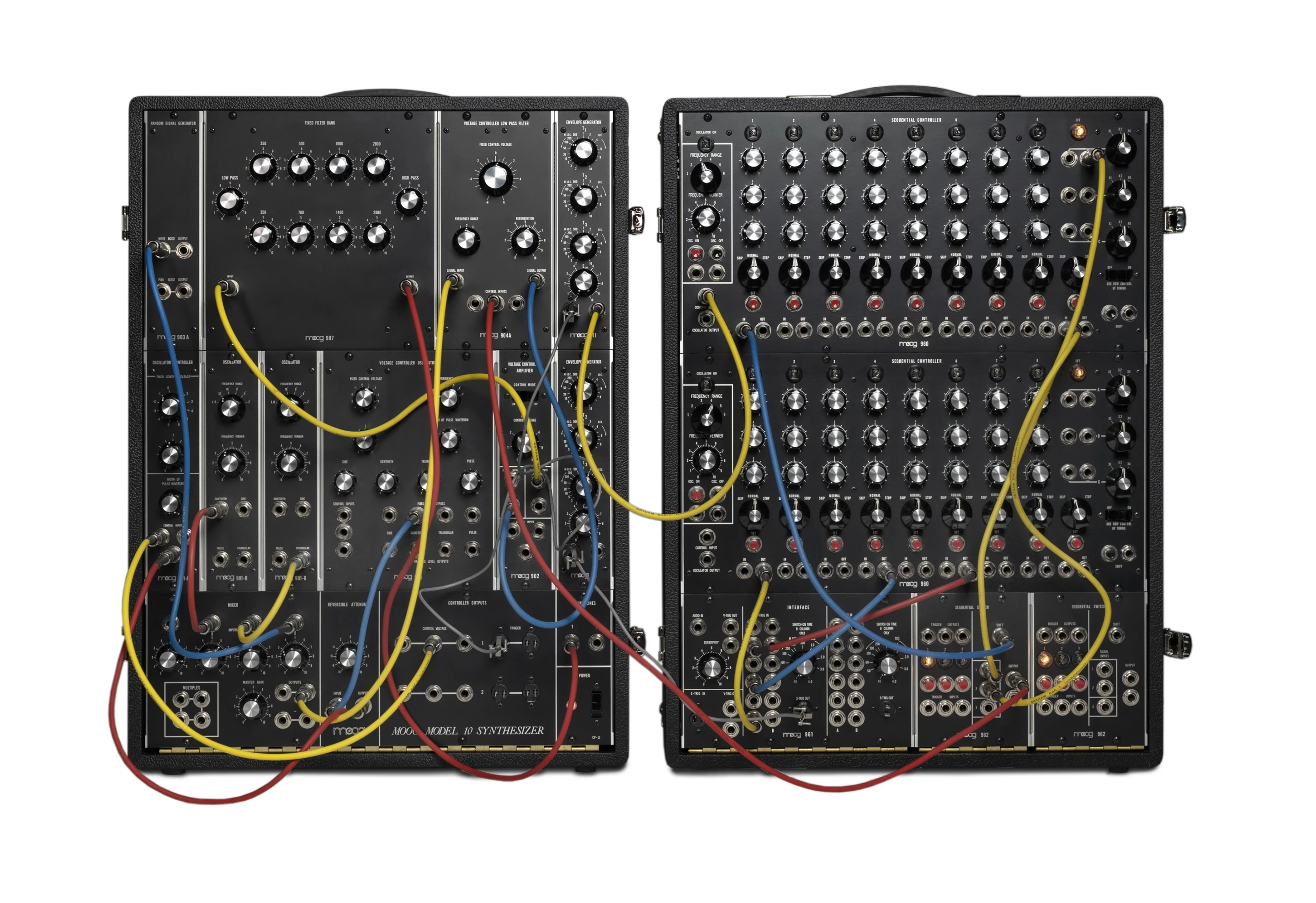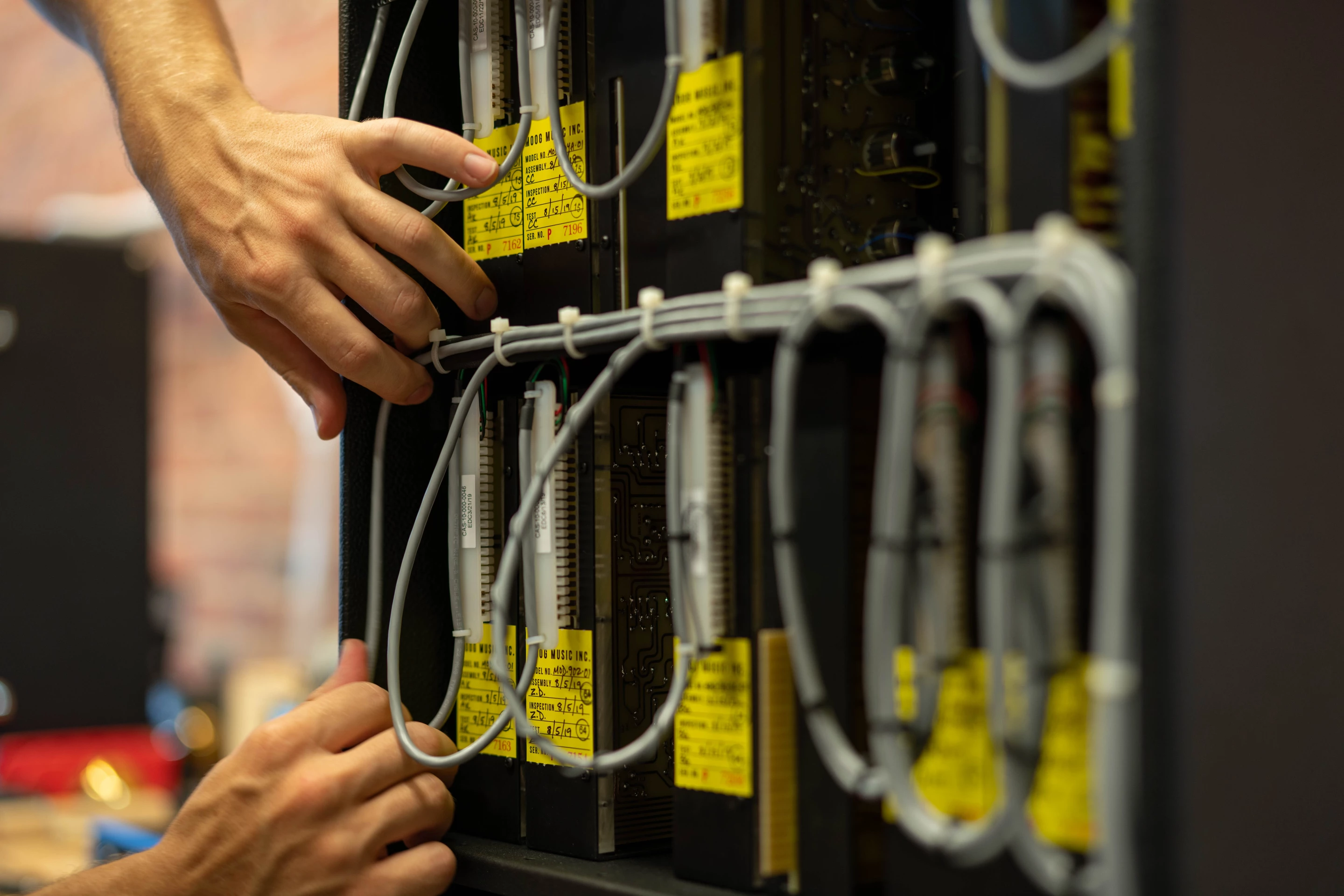A few years ago, Moog dipped into its substantial synth archives and announced a limited production run of some 1970s modular behemoths. Now, nearly 50 years after the Moog 10 compact modular synthesizer went into production, new models that are faithful to the originals are being reborn.
The new limited edition Moog Model 10 Synthesizers are being hand-built to precise 1971 specifications using original documentation and circuit board files, and will be housed in a wooden cabinet wrapped in road-ready tolex. They each rock 11 analog modules, including three 900-series oscillators and a 907 Fixed Filter Bank.

After each module is hand-tested, an aluminum plate is secured out front, and the unit will be shipped out to the buyer. Oscillators, filters, sound generators and other modules are connected to each other – or patched – using TS cables.
Moog hasn't announced pricing, nor said exactly how limited the limited production run will be, but it's being listed for pre-order online with a ticket of US$9,950. The video below shows Moog synths being created, and the soundtrack comes courtesy of Bana Haffar and a Moog Model 10.
Source: Moog Music








